MSF conversation starters
Create connections and spark discussions about people in urgent need.
90% of our funding comes from individual donors. Learn how you can support MSF’s lifesaving care with a gift.
Create connections and spark discussions about people in urgent need.
Welcome to MSF Connections: your discussion guide to sparking meaningful, inspiring conversations about humanitarian issues with people in your community.
Here’s how to use our discussion guide in three easy steps:
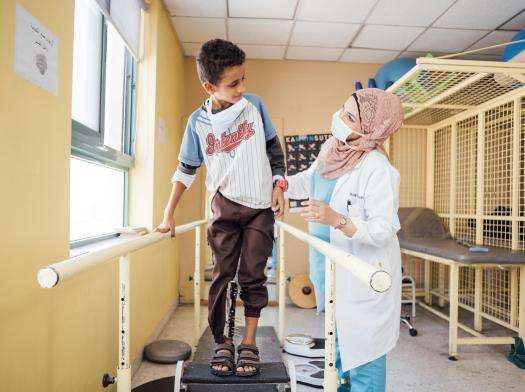
MSF physiotherapist Rula Marahfeh guides 11-year-old Ahmed on how to walk again.
© Peter Bräunig
Consider those who've fled a conflict zone, experienced a natural disaster, or have been affected by a deadly outbreak.
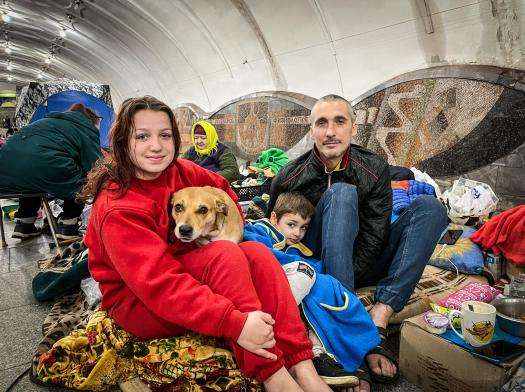
Pasha, 36, living with his 4 year-old son Egor and his wife Svetlana, 23, in Akademika Pavlova metro station, Ukraine.
© Mohammad Ghannam
Money or passport? Cell phone or shoes? Blanket or water bottles? Cherished heirlooms or pet?
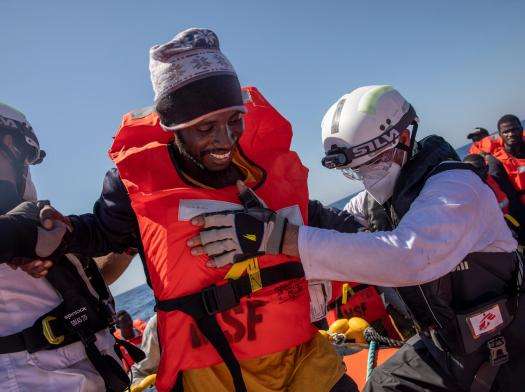
Rescued people are transferred by MSF teams to the RHIBS.
© Pablo Garrigos
Which of our core principles means the most to you?
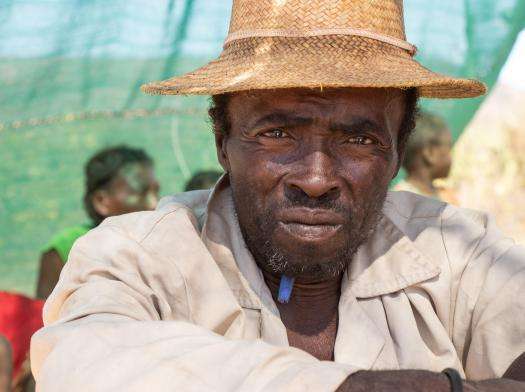
At a mobile clinic in Ambaninato, Madagascar, MSF provided measles vaccinations and distributed food.
© Solen Mourlon
- Dr. James Orbinski, December 10, 1999; Nobel Peace Prize Acceptance Speech
How do you and your community bear witness to world events?
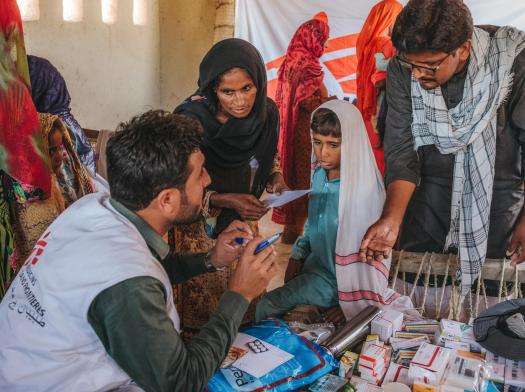
An MSF staff nurse explains a prescribed dosage to a patient at the MSF mobile clinic in Nangar Daro village, Pakistan.
© Asim Hafeez
What are three ways you can speak out and take action—whether in private or public—about the plight of the people that we treat?
Some humanitarian crises make the headlines—others don’t. Unrestricted support from our donors allows us to mobilize quickly and efficiently to provide lifesaving medical care to the people who need it most, whether those needs are in the spotlight or not. And your donation is 100 percent tax-deductible.
© Médecins Sans Frontières 2024 Federal tax ID#: 13-3433452
Unrestricted donations enable MSF to carry out our programs around the world. While we try to honor requests to earmark, should we receive more gifts than we can use for a program, we will reallocate them where the needs are greatest.
For Donors
For Supporters
For Media
For Recruits
General Interest
© Médecins Sans Frontières 2024 Federal tax ID#: 13-3433452
Unrestricted donations enable MSF to carry out our programs around the world. While we try to honor requests to earmark, should we receive more gifts than we can use for a program, we will reallocate them where the needs are greatest.
Your gift helps us provide medical humanitarian aid for hundreds of thousands of people each year.
Learn more87%
Programs
12%
Fundraising
1%
Management & General Admin

We need your support to continue this lifesaving work.